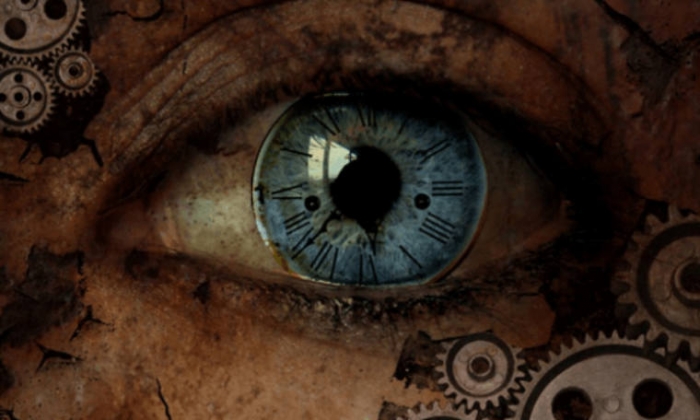Unless it's happened to you, it's a hard experience to explain, but it's a bit like trying to remember a dream that is slipping away.
And as soon as you rack your brain to try and think back to when you might have experienced something familiar, the feeling is gone.
Déjà vu is difficult to study as it is so fleeting. It has puzzled researchers as to how to replicate it in a laboratory environment.
This has led to a few different theories over time about how and why our brains act this strange way.
Accidental triggers in the brain
Back in 2006, scientists at the Leeds Memory Group thought they had gone some way to recreating the sensation in a lab by using hypnosis to trigger part of the brain's recognition process.
The experiment was based on the theory that two key processes happen in the brain when we recognise something or someone familiar.
Firstly, our brains search through our memories to see if we've observed the scene before, and if it comes up with a match, a separate area of the brain identifies it as familiar. In déjà vu, the second part of the process could be triggered by accident.
The researchers recruited 18 volunteers, who were asked to look at 24 common words. Then they were hypnotised and told that when they were presented with a word in a red frame, it would feel familiar. Words in green frames would make them think the word was in the original list of 24.
After being taken out of hypnosis, the subjects were given a series of words in different coloured frames, including some words that didn't appear in the original list.
In the group, 10 said they felt a peculiar sensation when they saw new words in red frames, and 5 said it felt like they were having déjà vu.
Malfunctioning memory
Over the years, psychologists have come up with a few different explanations for déjà vu.
It could be some sort of malfunctioning between the long and short term circuits in the brain, meaning new information may take a shortcut straight to long-term memory.
This skips over the mechanisms the brain normally uses to store information, so it could feel like we are experiencing something from the past.
It could also be something to do with the rhinal cortex, which is an area of the brain that makes us feel familiarity. It could somehow be activated without triggering other areas associated with memory.
That could explain why it's so difficult to pin down what feels familiar about the déjà vu. It's usually a vague familiarity, not a specific object or person.
A fourth theory is that the feeling déjà vu is set off by false memories. Psychologist Valerie F. Reyna came up with one of the leading theories for false memories. She told Business Insider:
"[Déjà vu] is certainly related to false memory in the sense that it is a memory dissociation kind of effect. It dissociates reality from your memory.
"There's all kinds of different dissociative experiences that can happen. Sometimes you cannot be sure, for example, if you dreamed something or experienced it, if you saw it in a movie or it happened in real life."
It's most likely a memory mismatch
Work last year by psychology researcher Akira O'Connor, however, suggested false memories may not be to blame. Instead, it could be a sign of the brain checking its memory.
O'Connor and his team scanned the brains of 21 volunteers while doing a common test for triggering false memories, New Scientist reported.
To do this, you give a person a list of related words, such as bed, night, snooze, and nap.
Then, when the person is asked about the words afterwards, they tend to give words related to what they have heard – in this case it would be "sleep".
To try and create the feeling of déjà vu, the researchers asked the subjects if they heard any words beginning with 's', which they replied they hadn't. But when they asked about the word 'sleep', they were able to remember they couldn't have heard it, but it felt familiar all the same.
The team expected to see areas of the brain associated with memory – such as the hippocampus – light up. But it didn't. Instead, areas involved in decision making were active.
When presenting the findings at the International Conference on Memory in Budapest, O'Connor said he thinks the frontal regions of the brain could be flipping through our memories, then sending signals if there's a mismatch between what we think we've experienced and what we actually have experienced.
"Brain regions associated with memory conflict, rather than false memory, appear to be driving the déjà vu experience," O'Connor wrote in a blog post about the findings.
"This is consistent with our idea of déjà vu as the conscious awareness of a discrepancy in memory signals being corrected. This, in turn, sheds some light on why déjà vu occurrence appears to decline with age despite the fact that memory errors tend to increase with age. If it's not an error, but the prevention of an error, this makes a lot more sense."
More about: #Deja-vu
















































